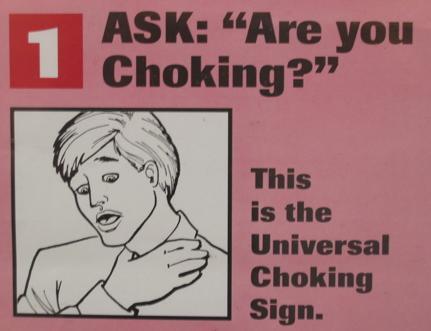Some readers will know that I am a linguistics enthusiast. So I am writing about Georgian linguistics. Since I know nearly nothing about its grammar, I will write about its phonology. Phonologically, Georgian is distinguished by its consonants, both by its range of them and its clusters of them. I’ll focus on the former, and in particular on a class of consonants that linguists call ejectives.
First, let’s look at some English consonants. Consider the sound t. When you make the t sound, you release some air while making a certain motion with your mouth and tongue. Now consider d. When you make this sound, you make about the same motion, but in addition, you use your voice. Try feeling your throat while saying the words dote and toad to see the difference. We say that d is voiced while t is unvoiced. Similarly, b is the voiced counterpart of p, and g is the voiced counterpart of k. For another illustration, imagine Apu saying the phrase “big dog”: it would come out as “pik tok.”
Georgian these three consonant pairs, and another, kh / gh. For kh, think of that throaty sound stereotypical of Hebrew and Arabic. gh is the voiced version of that; it comes out sounding like the throaty French r. So Georgian has these four consonant pairs.
Georgian differs from English, however, in adding a third version of these sounds: ejectives. It is difficult to describe these sounds, and I’m still not very good at making them. They’re basically the unvoiced sounds, but popped. They’re the sorts of sounds someone might make if they were doing a vocal imitation of a funky drumbeat. Ejectivity is denoted by an apostrophe. So there are the triads t-t’-d, p-p’-b, k-k’-g, and kh-kh’-gh. The closest English approximation I can think of is the t combo in “bit torrent.” We could also try “bip porrent” and “bik korrent.” There is no way to get the kh’. I can’t say it right. I can barely even hear other people say it. You have to make the sound deep in your throat, but also hold the air there before releasing it. If I try to do it, I usually choke.
Further, Georgian has several of what I call “mixed” consonants. We have at least two in English. One is tsh. You might know it better ch. The ch sound is a really a t followed by sh. We might say that it is a hard-start sh. Another is dzh, better known as j. j is really a d followed by zh (i.e. the “s” in “measure”). dzh is the voiced counterpart of tsh. In Georgian, there is, besides these, an ejective version, tsh’. They also have a distinct consonant ts, as well its voiced and ejective versions, dz and ts’.
Here is what Wikipedia says about the occurrence of ejectives: “Ejectives occur in about 20% of the world’s languages…They are extremely common in northwest North America, and frequently occur throughout the western parts of both North and South America. They are also common in eastern and southern Africa. In Eurasia, the Caucasus forms an island of ejective languages. Elsewhere they are rare.”
So Georgian consonants are difficult for us Anglophones. But we get our revenge with vowels: Georgian has five vowels (the same ones as Spanish and Japanese), each of which is included in English, while English has 10-15 extra ones. Georgians can’t say most of these.
Update: Georgian Consonants Again



I don’t even fancy myself a linguist, yet I have found Georgian phenology to be fascinating so far. I really struggle to say the kh, the gh, and the qkh… but my studentss can’t say th and struggle with a lot of the vowel sounds!
Pingback: Do They Speak Russian in Georgia? | georgiasomethingyouknowwhatever
Pingback: The Northwest Caucasian Language Family | georgiasomethingyouknowwhatever
Pingback: The Kartvelian (South Caucasian) Language Family | georgiasomethingyouknowwhatever
Pingback: The Armenian Alphabet: Pictures and Miscellania | georgiasomethingyouknowwhatever
Pingback: Turkish Phonology: Vowel Harmony | georgiasomethingyouknowwhatever
Pingback: The Georgian Alphabet and the Arabic Alphabet | georgiasomethingyouknowwhatever
I’m a beginner of Georgian, and here’s my impression/observation. When Americans say uh-{‘}oh (this is bad), uh-{‘}uh (nope), ki{‘}n (kitten), you hear a light throat click {‘} in the middle. It’s not a difficult sound. Just clear your throat lightly, and you’ll have it (your throat is closed for a moment then soon reopened; a light, clicky noise is produced by this touch-and-go). It’s also known as a hamza in Arabic, as in Qur{‘}an. Once you get it, you can just say t-{‘}a, k-{‘}a, p-{‘}a, etc. From this point of view, the unaspirated-ness of t’ etc. is a side effect of the closed throat: if your throat is closed, obviously no air/breath/puff is coming out through it.
“In Eurasia, the Caucasus forms an island of ejective languages. Elsewhere they are rare.” -> While this may be true about ejectives in the strict sense, Georgian “ejectives” may be a bit different (a lighter version?), and maybe the Korean language has similar consonants too.
To my ear, Georgians ejectives have more of a deliberate pop, rather than being a halt of some kind. They’re also a lot heavier than (Eastern) Armenian ejectives, which are pretty subtle.
I agree that the difference between aspirated and unaspirated consonants in Georgian is clearer than that in Armenian, and perhaps Georgian is a great starting point to learn this kind of three-way or four-way contrasts. That said, this is still difficult for me! I’m more or less ok with წ vs. ჭ, but I’m a little at a loss about თს as in გაზეთს. If a word ends in ტ, then will we have ტს too? If so, თს and ტს are the same as ჭ and წ respectively? Or not? Can anyone please explain this?! [This is also related to the other question of yours about how one can hypothetically write Georgian using the Arabic alphabet: if ჭ and თს are the same, one can write both as تس, but if not that’s a problem.]
Also, Armenian unaspirated consonants are not ejectives, and it’s interesting to compare Georgian ejectives with other ejectives. When you were in Caucasus, maybe you sometimes heard other languages with ejectives (Abkhaz, Abaza?) actually being spoken. How did they sound, especially their ejectives, compared with Georgian?